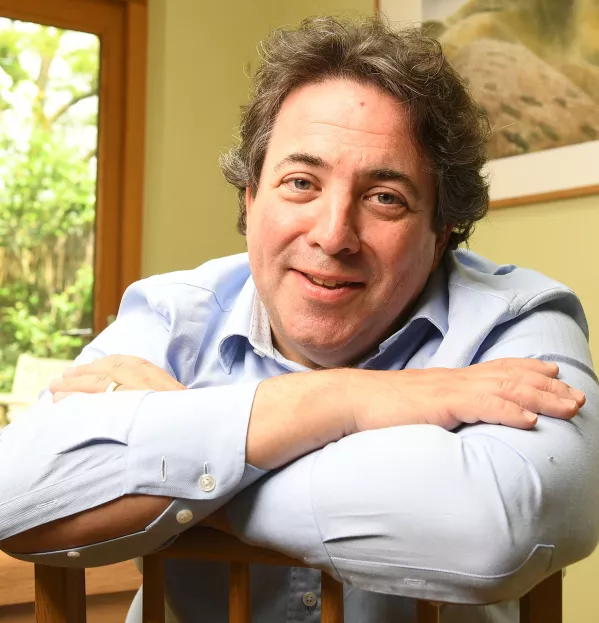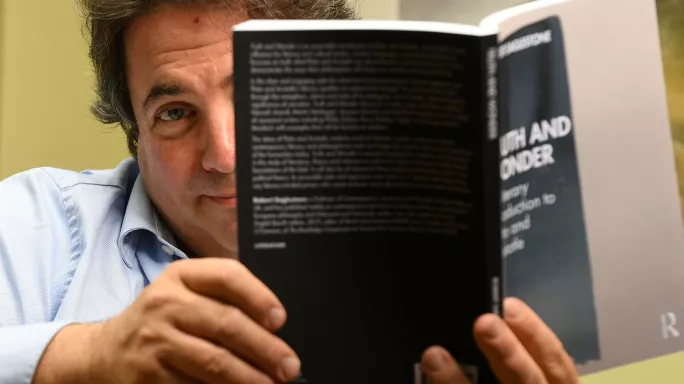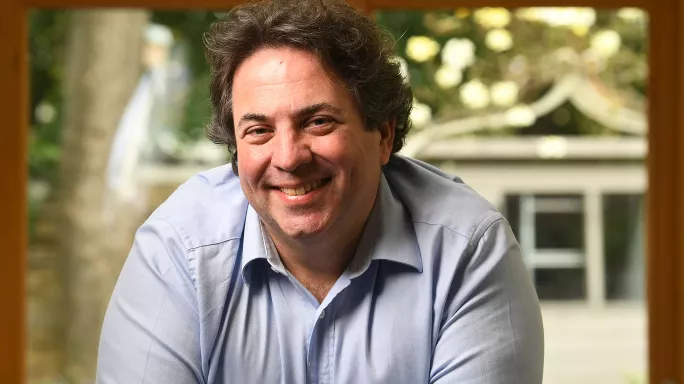
- Home
- Teaching & Learning
- General
- How one view of knowledge came to dominate learning
How one view of knowledge came to dominate learning

It was when his children started their GCSEs that Robert Eaglestone first got the feeling that something might be going wrong with how English was being taught in schools.
Eaglestone, a professor of English at Royal Holloway, University of London, remembers his daughter bringing home a poem to annotate and watching as she labelled it with examples of alliteration and rhyme.
“I asked her: ‘But what does the poem mean?’, which is what you’d ask a first-year [university] student. She had no idea, but she’d learned all these labellings,” Eaglestone says.
This experience, along with conversations with secondary school teachers, brought him to the conclusion that, in recent years, something had “profoundly changed” in English teaching, leading to a gulf between how the subject was viewed at university and how it was approached in schools.
“What seems to have changed is the idea of what kind of knowledge the subject teaches,” Eaglestone says. “There are other things that I think teachers and academics are very concerned about, but the thing that started me off was talking about knowledge.”
He distilled his thinking about this, and how “knowledge-rich” approaches are affecting humanities subjects, into a 2021 pamphlet: ‘Powerful knowledge’, ‘cultural literacy’ and the study of literature in schools.
Tes sat down with him to find out more about these ideas, and how he sees them playing out in classrooms.
Tes: In your pamphlet, you write about how we have to think about ‘knowledge’ differently, depending on the school subject we are talking about. Can you summarise your thoughts on this?
Robert Eaglestone: There are different sorts of knowledge. Science teaches one kind of knowledge, and the humanities usually teach another kind of knowledge.
The way I think of it is that in a successful physics lesson, all the students would end up coming up with the same answer to the physics problem. But in a successful English lesson, the idea is that all students will come up with different interpretations, because it’s about human distinctiveness and difference and understanding those things; it’s all based in your own experience.
Aristotle’s word for that kind of knowledge is “phronesis”. It’s one of those complicated words that scholars argue about all the time, but essentially, it means learning and reflecting on experience, and drawing ideas from that.
How does phronesis apply to the subjects we’re talking about?
In maths, for example, you don’t learn from experience; you learn from first principles, and you work things out. But in normal life, there’s no scientific way of working out who the best plumber to call is, or what you should do about a life situation. You learn those things through experience and reflecting on that experience.
What the humanities teach is how to reflect on other people and on yourself and on experience. Of course, science is very keen to get away from that because that often leads to what scientists call “folk ideas” about what the answers are. So scientists, quite rightly, are anxious about that. That’s what someone like Michael Young [who developed the concept of “powerful knowledge”] is anxious about. But in English, it’s exactly that kind of thinking about people and experiences that we’re really keen on.
Does that mean that ideas about “powerful knowledge” don’t apply to English?
Michael Young has this great example of powerful knowledge, which I’ll summarise. He basically says that pupils’ relationship with the classroom concept of “the city” should be different from their actual relationship with their experience of London, as the city where they live.
For science, that makes sense, because you’re assuming there’s an objective reality. But transposed to English, that’s nonsense because your lived experience of seeing Hamlet on stage and reading it and responding to it, or of reading Harry Potter, is exactly where we start. So, the idea that you want to separate out experience and personal understanding from what you do in the classroom is already misunderstanding what happens in English.

In powerful knowledge, the idea is that the meaning of things can be explained by teachers, and students then echo it. But we know that literature and other humanities are meaning-making disciplines. We’re teaching our students to make meaning, which involves their own life, their own experiences and their own responses to texts. Of course, you hone and expand on their experiences and draw them out. But that’s where the study of literature begins: in that kind of responsiveness.
So, you can see how ideas about powerful knowledge and cultural literacy stand at one end of things, while the study of what literature really is stands at the other.
Given all that, how has the shift towards more “knowledge-rich” curriculum models affected the teaching of English, in your opinion?
This is a shift that has happened in the past 10 to 15 years, as the work of ED Hirsch and Michael Young was taken up in the Department for Education and in Ofsted, and then percolated through schools.
I don’t believe anybody’s a villain or wicked or anything like that. Lots of people are very keen on powerful knowledge [and related ideas] for good reasons: they say that it helps students in less well-off areas and helps students who are struggling. That’s kind of true, although it’s not as well borne out, I think, as the case they make for it.
But these ideas about knowledge are also deforming what the subject of English is; they have taken the central idea of what English teaches and they’ve twisted it into a kind of science.
How do you see the effects of that playing out in the classroom?
In several ways. One is through a focus on what you might call “feature spotting” - where students are asked to identify literary techniques like alliteration or rhyme. That’s the kind of easy, “right” or “wrong” science answer that [proponents of knowledge-rich approaches] are interested in. But, in fact, literary features only make sense within the wider understanding of the meaning of a text.
Then, there is stuff about the vocabulary gap: the idea that you can’t teach the first page of A Christmas Carol unless you’ve explained what all the peculiar words are when, of course, the words aren’t the crucial thing; you understand the meaning from the wider context.
‘These ideas have taken the central idea of what English teaches and they’ve twisted it into a kind of science’
The third one is the idea that there’s always a right or wrong answer. In powerful knowledge and cultural literacy, there is this idea that there are novices and experts. Of course, there’s some truth to that in all subjects, but in literature, the division isn’t quite so clear. I may have taught Hamlet for years and you may have just studied it last week, but you’ve still got things to say; you’re still a kind of expert in your own understanding and response to it.
But the worst effect on classroom practice has been around the importance of historical context.
What’s the problem with that?
There’s so much teaching of historical context of literary texts that their literariness disappears and they get treated as historical documents. Historical context is, again, easy to teach, it’s easy to assess, it can be right or wrong. But, at the same time, it disempowers the reader in all sorts of ways.
For example, if you’re told that the Victorians were very horrid to women, which is true, when you read and study Jane Eyre, you can’t see ways in which that’s questioned or critiqued. Your own understanding of the text is immediately bracketed into this overarching and slightly stereotyped historical understanding.
Historical context is presented as “the answer” in a way that means students almost don’t have to read the text. They feel disempowered by the sense there is some fact they don’t know, which is outside the text but which tells them what the text means. In “normal” reading, the text tells you all you need to know.
All these things that ask for right or wrong answers in a subject that doesn’t have right or wrong answers are very destructive, I think.
Many would say that classroom practice is shifting as part of the drive to make education more evidence informed, based on what we know about cognitive science. Isn’t this a good thing?
Look, science is absolutely great. It saves people’s lives. Science is fantastic. But scientism is a kind of extension of science into areas in which it shouldn’t be - and I’d say that both critical literacy and powerful knowledge are scientistic.
The cognitive load approach and those kinds of theories are great, I’m sure, for some disciplines, although the evidence is nowhere near as strong as the advocates suggest, as you can see by actually reading the papers that they quote all the time.
But education, and English in particular, doesn’t necessarily work like that because we’re interested in a much wider sense of meaning. It’s not as clear-cut as the kind of learning that cognitive science approaches are based on.
I wish people would read the conclusion of Daniel Willingham’s book [Why Don’t Students Like School?] - where he talks about creative writing and meaning - with the same intensity they read the sections on cognitive load and on recall, because they’d see that, even in his own words, there’s a sense of trying to figure out the bigger meaning and trying to deal with personal response.
Should schools be moving away from cognitive-science-based approaches, then, in your view?
One of the things about the cognitive science approach is that it ignores the fact that all disciplines are different. You can’t just swap in one bit for another bit, because there are different ways of thinking; that’s why they’re different disciplines.

Of course, there are some things that are common to all forms of teaching, but I think we’ve reached a stage where the things that make individual subjects different are being swamped by the current orthodoxies.
A way of teaching has grown up that treats people as if they were computers, as if they were artificial intelligence. It’s based around the idea that we can load information up into the short-term memory, and then some of that will go into long-term memory - like taking pictures on your phone. But that’s not how human beings work, and it’s not what the humanities do.
So, what do you think needs to change?
We need to reframe national conversations about education away from the language of powerful knowledge and cultural literacy and towards the significance of disciplines, and teachers’ deep understanding of their fields.
We know from the work of John Hattie, for example, that what makes really successful teachers is not their subject knowledge, not how many facts they know, but their deeper subject understanding. By that, I mean: what are the habits of mind? What are the ways in which our subject deals with its object?
It’s time for disciplines to stress their own signature pedagogies (a term coined by Lee Shulman) a bit more, and for us to recognise that different disciplines represent different ways of thinking and different ways of approaching things in the world.
What does the “signature pedagogy” for English involve?
The overall signature pedagogy, I think, is about dialogue. It’s a fundamentally dialogic, collaborative subject. English is about conversation, and so the key pedagogy is firstly about dialogue.
Second, it’s circular. You get a big picture and the small detail helps you understand the big picture better. And then the big picture helps you understand the detail and significance. And those two things go round and round and expand; the large-scale understanding and the small-scale detail are constantly reinforcing and supporting each other.
‘A way of teaching has grown up that treats people as if they were computers. But that’s not how human beings work’
There’s a technical name for this, which is “hermeneutics circularity”. That’s how all the humanities work but it’s not how the sciences work; the sciences work by advancing one little thing at a time in an ongoing sequence.
Another key element of English is a focus on writing and redrafting. I know that we are not even really allowed to talk about coursework now, but I hear people say that watching students develop their writing through the work of the course is another signature pedagogy because, again, English is about people’s responses and their understanding and their own experience.
Learning to write is not just reporting information; it’s a kind of thinking in its own right. That’s a vital skill for the world of work - and that’s a vital thing that English teaches you.
The elements you have just outlined are not straightforward to assess. Do you see that as problematic?
I agree that the assessment is harder but that’s why we developed assessment objectives.
These bring their own problems - they have led to a kind of atomisation of the subject, where you have 20 per cent of the marks for assessment objective two and five marks for assessment objective one, which I’m not sure is helpful. So, I’m not defending them. But the point of the assessment objectives is to make clear, holistically, the sorts of things we expect to see in a piece of work.
From our current point of view, that does seem to make it harder to assess. But the assessment has to be holistic because the signature pedagogies involve working towards goals in a more holistic, reflective way.
That can seem frightening but it is what the discipline offers. And I’m sorry to go on and talk again about employment, but that is also what employers really love. The research shows unambiguously that employers want people who can communicate, collaborate, think critically and creatively, who have got independence and flexibility and are adaptable. Those are the skills, or the capabilities, that English teaches.
Regardless of what we have discovered that ChatGPT can do, the market is always going to need people who can communicate, collaborate, think critically and be creative. And that kind of flexibility is going to give students longer careers and better ways of engaging with society.
So, we needn’t be frightened of the holism involved in those signature pedagogies because they’re what the world is looking for.
You need a Tes subscription to read this article
Subscribe now to read this article and get other subscriber-only content:
- Unlimited access to all Tes magazine content
- Exclusive subscriber-only stories
- Award-winning email newsletters
- Unlimited access to all Tes magazine content
- Exclusive subscriber-only stories
- Award-winning email newsletters
You need a subscription to read this article
Subscribe now to read this article and get other subscriber-only content, including:
- Unlimited access to all Tes magazine content
- Exclusive subscriber-only stories
- Award-winning email newsletters
- Unlimited access to all Tes magazine content
- Exclusive subscriber-only stories
- Award-winning email newsletters
topics in this article



